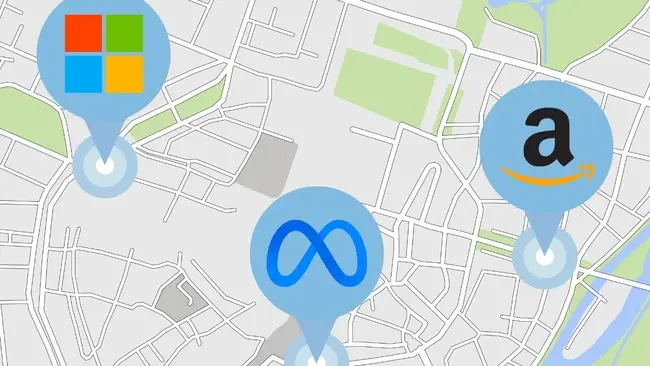The Overture Maps Foundation, a mapping initiative by Meta, Amazon, and Microsoft, has just released the world’s first worldwide open map dataset – and it could be Google Maps' biggest rival yet.
The dataset, released yesterday, combines various sources of open map data validated and conflated through a series of quality checks for four data layers covering more than 59 million locations around the world.
These data layers include Places of Interest (POIs), Buildings, Transportation Networks, and Administrative Boundaries, which Third-party developers to create their own global mapping or navigational products and take on mapping giants like Google Maps and Apple Maps.

Overture says the data layers have been formatted so developers can “ingest and use map data in a standard, documented way and will be interoperable.”
Developers can then use this information on which to build a mapping app or any service that relies on navigation. The dataset is available on Overture’s website.
“The Places dataset, in particular, represents a major, previously unavailable open dataset, with the potential to map everything from new businesses big and small to pop-up street markets located anywhere in the world,” Marc Prioleau, Overture’s executive director, said in a statement.
“Overture plans to build a broad collaboration that can build and maintain an up-to-date, comprehensive database of POIs.”
Google Maps’ Biggest Rival
First formed last year as a collaborative initiative between Amazon, Meta, Microsoft and TomTom, the Overture Maps Foundation is a global, open-source mapping project.
It today includes more than a dozen mapping, geospatial and technology companies, including the likes of ESRI, Precisely, PTV Group, SafeGraph and more.
Update: We've released our initial open map datasets.
— Overture Maps Foundation (@OvertureMaps) July 26, 2023
The milestone release includes Places of Interest, Buildings, Transportation Network, and Administrative Boundaries layers, establishing a baseline for our future work on open map data.
Learn more:https://t.co/4XQGDD8OMz pic.twitter.com/LpKePKqkWg
Overture’s aim is “to create the smartest map on the planet,” according to TomTom Vice President of Engineering Mike Harrell by creating interoperable map products based on the premise that data needs to be a shared asset to support future applications.
At the very least it should help improve mapping services like Microsoft’s Bing Maps, which lags severely behind Google and Apple Maps.
As the requirements for accuracy, recency and attribution in maps have grown drastically over the years, and the costs and complexities of collecting and maintaining global map data have grown beyond the capability of any single organisation.
This makes it a compelling alternative to the likes of Google Maps for app third-party developers looking to create global mapping or navigation products since they can use Overture’s data freely and at a much lower cost than Google Maps’s API.
Want to build your own maps without paying Google or Apple? Check out Overture Maps Foundation, a new initiative by Meta, Microsoft, AWS and TomTom that offers free data for 59 million points of interest. #OvertureMaps #OpenSource #Maps https://t.co/x49c4Q2ETV
— LancingLight (@LancingLight) July 27, 2023
Google takes a closed approach, giving it greater control over how its map data is used and implemented, and charges app developers for access to Google Maps based on how many times the app’s users make use of its mapping info.
Developers must currently pay to access Map’s API, and other mapping APIs like Apple Maps charge developers who are making non-native apps.
“Anyone who works in mapping knows that the initial data is just the beginning; the ongoing challenge lies in maintaining the data amidst constant changes to meet user expectations,” said Mr Prioleau.
“Overture plans to build a broad collaboration that can build and maintain an up-to-date, comprehensive database of POIs.”




Comments ( 0 )